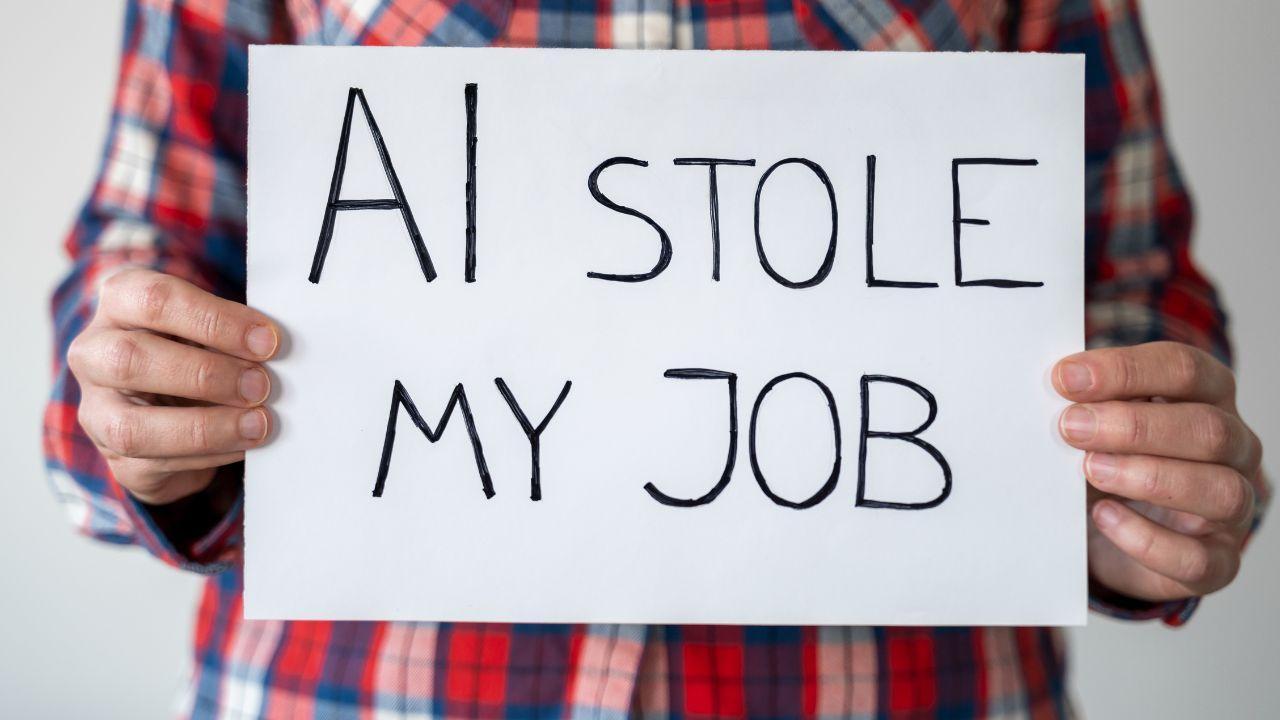
Post by : Saifi Sam
Artificial Intelligence (AI) is no longer a futuristic concept. It has become an integral part of industries ranging from healthcare to finance, transforming how businesses operate and employees perform their tasks. As AI adoption accelerates, a pressing question arises: will AI replace jobs or create new opportunities? Understanding this balance is crucial for professionals, businesses, and policymakers preparing for the evolving workforce landscape.
AI technologies, including machine learning, natural language processing, and robotic process automation, are being implemented across industries to improve efficiency and reduce human error. Companies are increasingly using AI for tasks such as data analysis, customer service automation, predictive maintenance, and supply chain optimization.
While AI streamlines operations, it also raises concerns about job displacement. Routine and repetitive tasks are particularly vulnerable, meaning that some administrative, manufacturing, and customer support roles could face significant changes.
Jobs at Risk of Automation
Research from McKinsey and the World Economic Forum highlights that up to 30% of current work activities could be automated by AI within the next decade. Roles involving structured, predictable tasks are most at risk. Examples include:
Data entry clerks and administrative assistants
Telemarketing and customer support staff
Manufacturing line workers
Accounting and bookkeeping clerks
The rise of AI-driven automation in these areas could reduce the demand for certain roles but also free up employees to focus on higher-value tasks, such as strategic decision-making and creative problem-solving.
While AI may replace some roles, it simultaneously creates entirely new career paths and business opportunities. The need for AI specialists, data scientists, machine learning engineers, and AI ethics experts is growing rapidly. Additionally, AI is fostering entrepreneurial innovation, enabling startups to develop new AI-powered products and services.
Beyond technical roles, AI also generates demand for jobs requiring uniquely human skills that machines cannot replicate. These include:
Emotional intelligence-driven roles in counseling, human resources, and customer experience
Creative professions such as marketing strategy, design, and content creation
Strategic planning and decision-making roles
AI thus shifts the job market rather than eliminating opportunities entirely, emphasizing the need for workforce reskilling and upskilling.
To harness AI as an opportunity rather than a threat, employees must adapt. Continuous learning, digital literacy, and proficiency in AI tools are crucial. Organizations that invest in reskilling programs and foster a culture of adaptability will be better positioned to thrive in the AI-driven economy.
Several initiatives are helping workers transition into AI-related roles. Online courses, bootcamps, and professional certifications in AI and machine learning are becoming increasingly accessible. Furthermore, interdisciplinary skills—combining technical knowledge with critical thinking, creativity, and communication—are highly valued in the evolving job market.
One of the most transformative aspects of AI is its potential to augment human capabilities rather than simply replace them. AI-powered tools can assist employees in analyzing vast datasets, generating insights, automating mundane tasks, and enhancing productivity. This collaboration allows humans to focus on problem-solving, innovation, and customer engagement—areas where machines are still limited.
For example, in healthcare, AI assists doctors in diagnosing diseases with higher accuracy, while medical professionals focus on patient care. In finance, AI algorithms detect fraud in real-time, while analysts interpret trends and make strategic decisions. Such partnerships demonstrate that AI can serve as a force multiplier, creating more meaningful work opportunities.
Certain industries are experiencing a net positive impact from AI adoption, with opportunities outpacing displacement. These include:
Healthcare: AI supports diagnostics, treatment planning, and drug discovery.
Technology and Software Development: AI enables new products, automation tools, and smarter applications.
Education: AI-driven learning platforms enhance personalized education and skills training.
Finance: AI improves fraud detection, risk assessment, and customer experience.
By focusing on sectors where AI creates value rather than replaces labor, workers can identify careers that are resilient to automation.
AI’s impact on jobs is nuanced. While automation may displace certain roles, it also generates new opportunities, enhances productivity, and enables humans to engage in higher-value work. Preparing for this shift requires proactive learning, adaptability, and leveraging uniquely human skills alongside AI technologies.
By understanding AI’s capabilities and limitations, both individuals and organizations can navigate the changing job landscape effectively, turning potential threats into opportunities for growth and innovation.
This article is for informational purposes only and does not constitute professional, financial, or career advice. The impact of AI on jobs may vary by industry, location, and individual circumstances. Readers are encouraged to conduct further research and consult professionals before making career or business decisions related to AI adoption and workforce planning.










Bangladesh Wins First T20I Against Afghanistan in Sharjah
Bangladesh survived Rashid Khan’s spell to beat Afghanistan by four wickets in Sharjah, taking a 1-0

NZ vs Australia T20 Match Abandoned Due to Heavy Rain
Rain washed out second T20 between New Zealand and Australia; series 1-0 to Australia as third match

Delhi Police Foil Attack on Comedian Munawar Faruqui
Delhi Police prevented an attack on comedian Munawar Faruqui, arresting two shooters in a planned pl

India’s Air Force Strikes Pakistan in Operation Sindoor
India’s Air Force targeted Pakistan in Operation Sindoor, destroying jets, radar, and terror camps a

Big Fire at Chevron Oil Refinery in El Segundo, Los Angeles
Fire breaks out at Chevron’s El Segundo refinery in LA. Authorities confirm containment, no evacuati

Deadly Attack in Manchester Targets Jewish Community
Two killed and three injured in Manchester synagogue attack on Yom Kippur; authorities increase secu